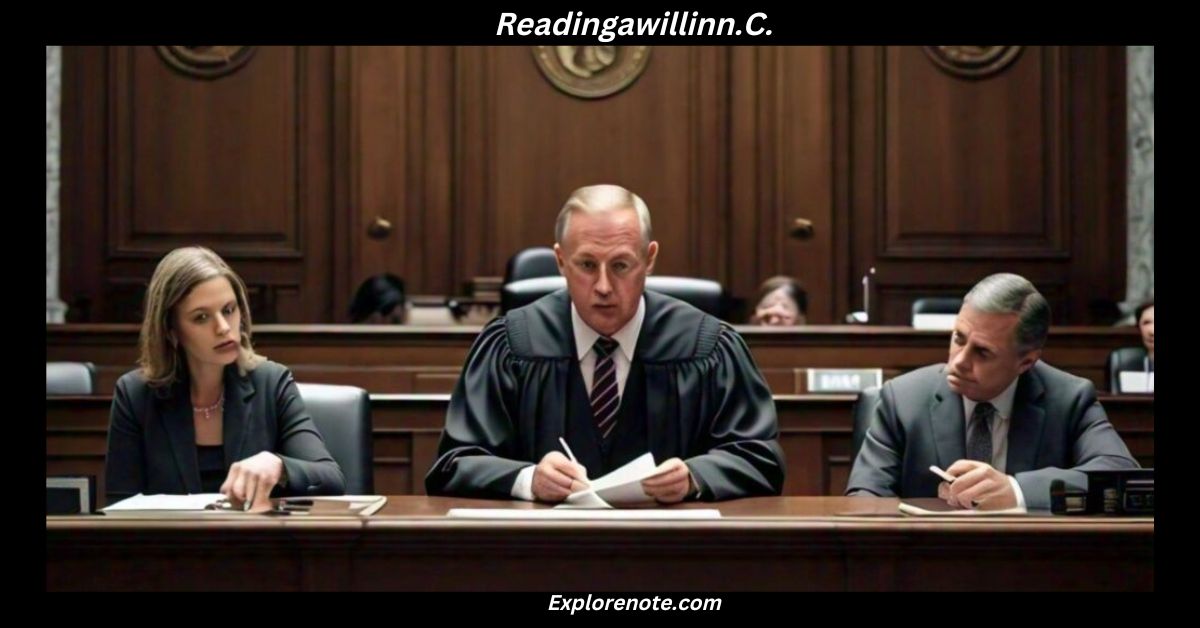Reading a will, or what we refer to as “Readingawillinn.C.,” is an essential legal process that takes place after a person has passed away.
In simple terms, this process involves the interpretation and execution of a will—a legal document that outlines the deceased person’s wishes regarding the distribution of their estate and belongings.
In this comprehensive article, we will break down everything you need to know about Readingawillinn.C., its importance, key steps, common challenges, and related concepts.
This guide is especially crafted for readers in the USA who are looking for easy-to-understand information.
What Is Readingawillinn.C.?
“Readingawillinn.C.” refers to the act of understanding and carrying out the instructions left behind in a will.
A will is a critical document that allows someone to dictate how their assets—such as money, property, and personal belongings—should be distributed after they die.
Importance of Readingawillinn.C.
The importance of Readingawillinn.C. cannot be overstated. When a person passes away, their loved ones need to know what the deceased wanted done with their possessions. Reading and executing a will helps to:
- Ensure the Deceased’s Wishes Are Respected: The main purpose of a will is to ensure that the person’s wishes are honored after their death.
- Prevent Family Conflicts: Without a clear will, disputes may arise among family members about who gets what. A well-read and executed will can prevent misunderstandings.
- Legal Compliance: It is a legal requirement in most places, including the USA, that a person’s estate is handled according to their will or, in its absence, according to state law.
Key Steps in Readingawillinn.C.
1. Locating the Will
The first step in Readingawillinn.C. is finding the will. A will can be stored in various places, including:
- A personal safe or safety deposit box.
- With an attorney who helped draft the will.
- Online through a will storage service.
2. Appointing the Executor
An executor is the person responsible for ensuring that the terms of the will are carried out. The deceased usually names the executor in the will.
If no one is appointed, the court may appoint an executor or administrator.
3. Filing the Will with Probate Court
The will must be filed with the local probate court to begin the legal process of distributing the deceased’s assets.
Probate is a legal process where the court validates the will and supervises the distribution of the estate.
4. Valuing the Estate
The executor is tasked with identifying and valuing all the assets listed in the will. These assets can include:
- Real estate
- Bank accounts
- Investments
- Personal belongings
5. Paying Debts and Taxes
Before the estate can be distributed, the executor must pay off any outstanding debts, including:
- Personal loans
- Credit card bills
- Estate taxes
6. Distributing the Assets
After all debts and taxes are settled, the executor distributes the remaining assets to the beneficiaries according to the instructions in the will.
Challenges in Readingawillinn.C.
While the process may sound straightforward, there are several potential challenges in Readingawillinn.C.:
1. Contested Wills
Family members or other parties may contest the will if they believe:
- The will is not valid.
- The deceased was not of sound mind when they made the will.
- There was undue influence on the person making the will.
2. Ambiguous Instructions
Some wills may have unclear or confusing language, which can make it difficult to interpret the deceased’s wishes.
3. Missing or Lost Wills
If the will cannot be located, it can lead to complications. Without a will, the estate is distributed according to state law, which may not align with the deceased’s wishes.
4. Multiple Wills
In some cases, a person may have drafted several versions of their will. It’s important to use the most recent, legally binding document.
The Role of Probate Court in Readingawillinn.C.
The probate court plays a vital role in overseeing the distribution of an estate. Here are the key functions of probate court:
- Validating the Will: The court ensures that the will is legitimate and properly signed.
- Supervising the Executor: The court monitors the executor’s actions to ensure that they follow the terms of the will.
- Settling Disputes: If there are disagreements about the will, the probate court resolves these disputes.
How to Avoid Common Pitfalls in Readingawillinn.C.
To avoid issues during Readingawillinn.C., it’s essential to follow these tips:
1. Keep the Will Updated
Make sure that the will is updated regularly, especially after major life events like marriages, divorces, or the birth of a child.
2. Use Clear Language
A well-written will should have clear, unambiguous language to prevent misinterpretation.
3. Choose the Right Executor
Choose a responsible and trustworthy person to serve as the executor. Make sure they understand their role and responsibilities.
Why You Should Seek Legal Help in Readingawillinn.C.
While it’s possible to go through the process without a lawyer, seeking legal advice can make Readingawillinn.C. easier. A lawyer can help:
- Interpret the Will: Legal professionals can clarify confusing language and ensure the will is understood.
- Navigate Probate Court: A lawyer can guide you through the legal requirements and paperwork.
- Resolve Disputes: If family members contest the will, a lawyer can represent your interests in court.
FAQs About Readingawillinn.C.
What happens if someone dies without a will?
If a person dies without a will, this is known as “intestate.” In such cases, the probate court distributes the estate according to state law, which may differ from the deceased’s wishes.
How long does the Readingawillinn.C. process take?
The length of the process can vary. In straightforward cases, it may take a few months. However, if there are disputes or complications, it could take much longer.
Can a will be contested?
Yes, family members or other parties can contest a will if they believe it is invalid or was made under questionable circumstances.
Do all assets go through probate?
Not necessarily. Some assets, such as jointly owned property or life insurance policies, may pass directly to beneficiaries without going through probate.
What is the executor’s role in Readingawillinn.C.?
The executor is responsible for carrying out the instructions in the will, including paying debts, handling taxes, and distributing the assets to beneficiaries.
Conclusion
Readingawillinn.C. is an essential process that ensures a deceased person’s wishes are respected.
While the process may seem complex, understanding the key steps, challenges, and legal requirements can make it much easier to navigate.
Seeking legal advice, keeping the will updated, and ensuring that all instructions are clear can prevent many common pitfalls.
This guide has provided you with a comprehensive overview of Readingawillinn.C., and with this knowledge, you can feel more prepared for what lies ahead.
Whether you are an executor or a beneficiary, understanding the will-reading process can help ensure everything proceeds smoothly.










